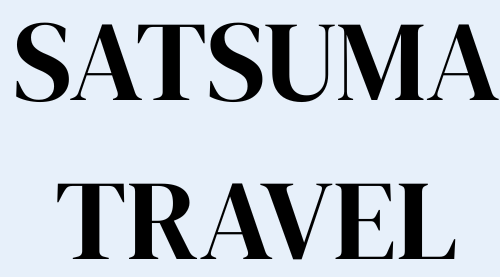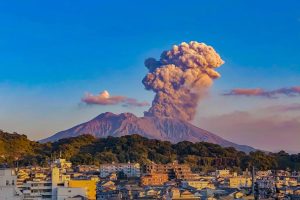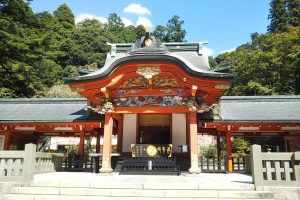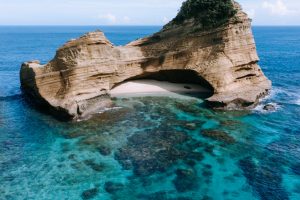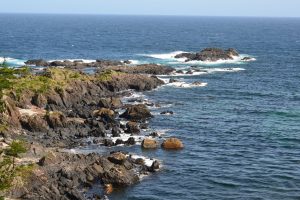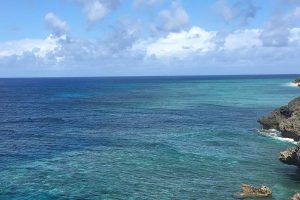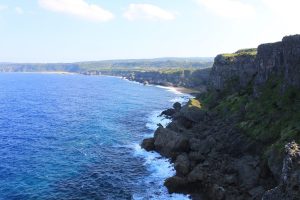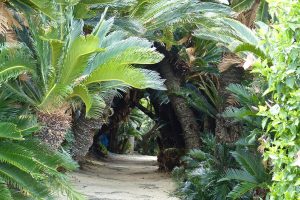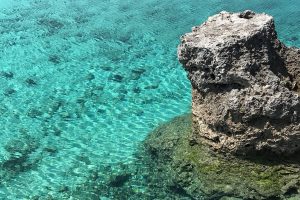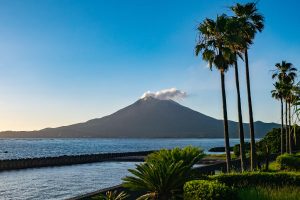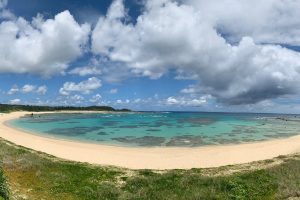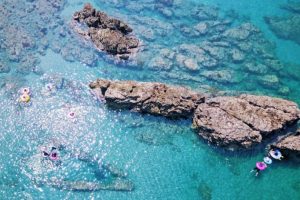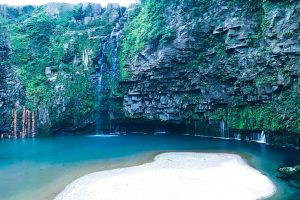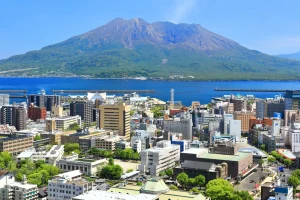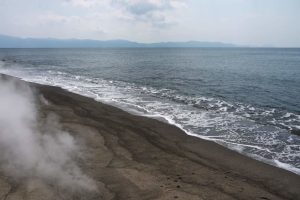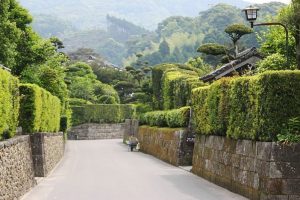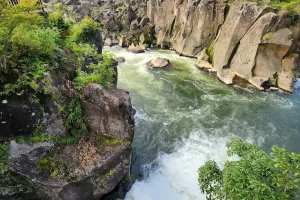Koshikishima
Koshikishima Islands lie in the East China Sea, approximately 30–38 km west off Satsumasendai, Kagoshima. Consisting of three inhabited main islands—Kamikoshiki-jima, Nakakoshiki-jima, and Shimokoshiki-jima—and numerous smaller islets, the chain spans roughly 35–39 km in length with a total land area of 118.7 km² and a population of about 5,600 (2010)
Established as a Quasi-National Park in March 2015, the protected area covers 54.5 km² of land and 252.9 km² of surrounding waters.
Nature & Scenic Spots
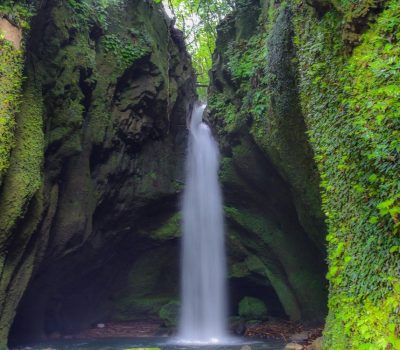
Contrasting Landscapes: Kamikoshiki and Nakakoshiki have gentle rolling hills and sandy spits, while Shimokoshiki features dramatic cliffs and rugged mountains, rising over 600 m .
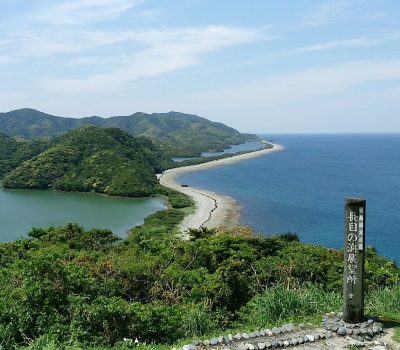
Nagame-no-Hama Sand Spit: A 4 km-long sandbar renowned for its beauty—one of Japan’s famous naturalscapes.
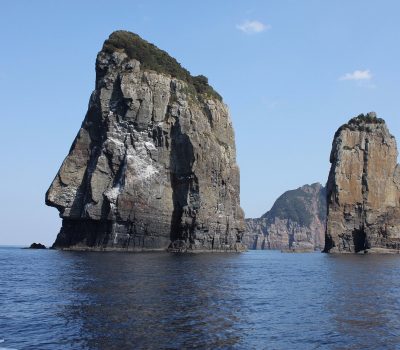
Napoleon Rock and Coastal Cliffs: Iconic sea stacks and steep cliffs ideal for sightseeing via boat cruises .
Tombolo Feature: The islands include one of Japan’s three major tombolos—sandbars connecting land masses.
Biodiversity & Birdlife: Recognized as an Important Bird Area, home to Japanese wood pigeons and notable for fossil-bearing cliffs dating to 80 million years ago.
Cultural & Historical Attractions
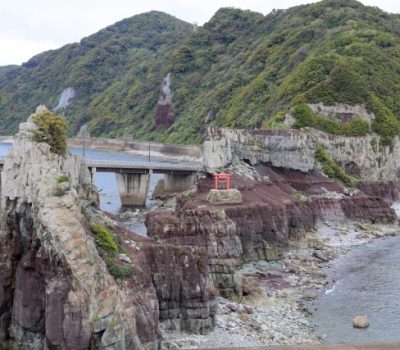
Koshikishima Villages: Traces of ancient habitation since the Jōmon and Nara periods, including samurai-era architecture in Shimokoshiki’s Teuchi district and religious customs like the Koshiki Daimyojin shrine built upon a cliff.
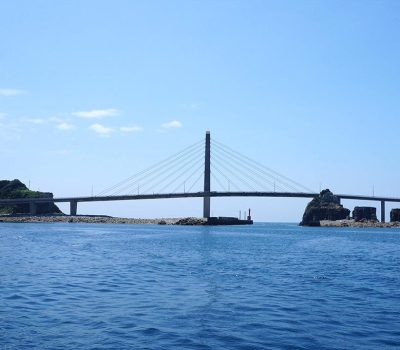
Bridges & Viewpoints: The Koshiki Bridge (2015) and Kanoko Bridge link the main islands and offer panoramic vistas from viewing decks like Bousetsu and Kinokuchi .
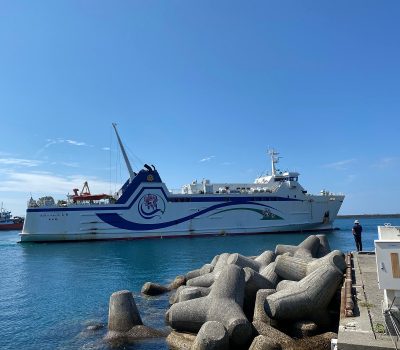
Cultural Traditions: Fossil cliffs, tombolo formations, and local festivals (e.g., UNESCO-recognized Toshidon on Shimokoshiki) reflect a rich island-based cultural heritage .
Activities & Itinerary
Cruising & Kayaking: Boat tours depart from Shimokoshiki, showcasing Napoleon Rock and coastal cliffs. Sea kayaking and snorkeling allow close-up nature interaction.
Diving & Snorkeling: Clear East China Sea waters reveal vivid marine life and underwater cliffs—ideal for beginners, too .
Scenic Hiking: Visit viewpoints like Tomekiyama (Kamikoshiki, 423 m) and Otake (Shimokoshiki, 604 m) offering sweeping seaside panoramas.
Camping & Art Workshops: Camp at seaside site on upper Shimokoshiki, enjoy stone-art sessions using local beach pebbles.
Local Eats & Culture
Seafood: Fresh kibi-nago fish, taka-ebi shrimp, oysters, and tuna are island specialties served in local eateries and featuring in signature dishes from fisher’s taverns to cafés .
Local Flavors: Enjoy salt products, passionfruit, aloe goods, kamaboko fish cake, Honkaku imo-shochu, and art‐burger—crafted around island ingredients .
Getting There & Stay
Access: Reach via high-speed ferry (≈50 min) from Sendai Port or regular ferry (≈70–75 min) from Kurino/Kushikino ports. Note: vessel departure is limited to two round-trips daily, so reservation is essential .
Island Transport: Minimal bus service—rent a car, bike, or scooter for easy exploration .
Best Seasons: Annual average temp ~18 °C. Peak flower seasons: June–July (silk trees, lilies), July–August (Kanoko lily), autumn/winter blooms include camellia .
Accommodation: Options include beachfront guesthouses, simple camping lodges, cafes with lodging near ferry terminals, and homestays in Teuchi and Sato hamlets .
